On average, it takes around 2-3 hours to complete a half marathon, with the fastest runners finishing in under 90 minutes and the slowest runners taking over 4 hours. If you’re a beginner runner, you can expect to finish in the 2.5-3 hour range, while more experienced runners might aim for a time closer to 2 hours.
Average Time to Run 21km Males
| Age Group | Beginners | Intermediate | Advanced |
| 15-20 | 02:25:57 | 01:40:48 | 01:24:42 |
| 20-25 | 02:04:15 | 01:28:12 | 01:09:39 |
| 25-30 | 02:05:18 | 01:22:36 | 01:11:24 |
| 30-35 | 02:06:21 | 01:23:18 | 01:12:06 |
| 35-40 | 02:07:45 | 01:23:39 | 01:13:51 |
| 40-45 | 02:17:12 | 01:29:36 | 01:19:48 |
| 45-50 | 02:22:06 | 01:31:42 | 01:22:15 |
| 50-55 | 02:28:45 | 01:43:15 | 01:25:24 |
| 55-60 | 02:35:24 | 01:47:48 | 01:36:15 |
| 60-65 | 02:49:03 | 01:54:27 | 01:42:12 |
Average Time to Run 21km Females
| Age Group | Beginners | Intermediate | Advanced |
| 15-20 | 02:34:00 | 01:54:06 | 01:28:54 |
| 20-25 | 02:35:45 | 01:36:15 | 01:24:00 |
| 25-30 | 02:36:06 | 01:37:18 | 01:25:24 |
| 30-35 | 02:36:48 | 01:38:42 | 01:26:48 |
| 35-40 | 02:39:57 | 01:42:12 | 01:28:54 |
| 40-45 | 02:41:42 | 01:44:39 | 01:33:27 |
| 45-50 | 02:42:24 | 01:46:03 | 01:36:15 |
| 50-55 | 02:42:45 | 01:49:33 | 01:38:21 |
| 55-60 | 02:59:12 | 01:57:15 | 01:43:15 |
| 60-65 | 03:09:42 | 02:06:21 | 01:46:03 |
To get a more accurate estimate of how long it might take you to complete a half marathon, it’s important to consider your current fitness level and training regimen. If you’re new to running, you might need to spend several months building up your endurance before attempting a half marathon.
On the other hand, if you’re an experienced runner, you might be able to complete the race with less training time. Regardless of your experience level, it’s important to approach the half marathon with a realistic and achievable goal in mind.
Table of Contents
Understanding the 21km Running Distance
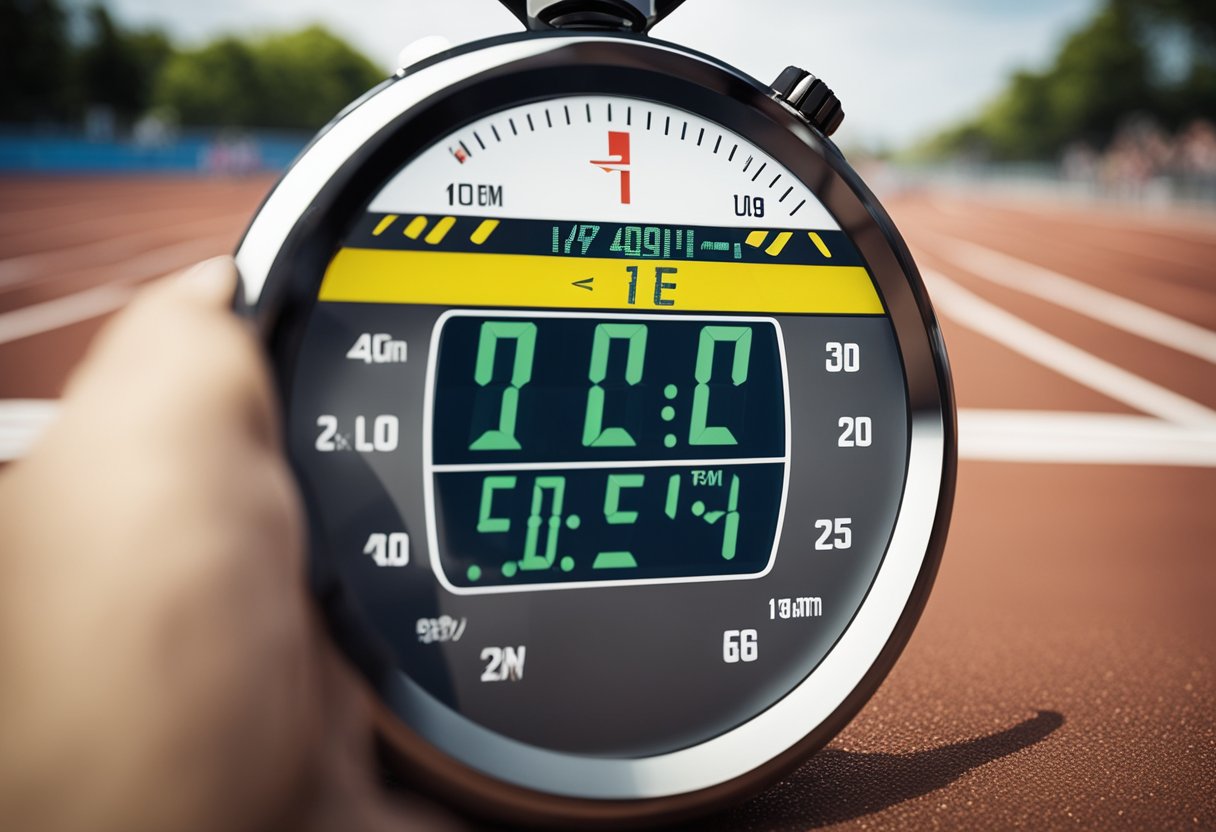
When it comes to running, understanding the distance you are aiming to complete is important. In this article, we will be focusing on running 21 kilometers (km), which is equivalent to 13 miles.
A kilometer is a unit of distance measurement in the metric system, while a mile is a unit of distance measurement in the imperial system. One kilometer is equal to 1000 meters, while one mile is equal to 1609.34 meters.
21 kilometers is a popular distance for long-distance running races, often referred to as a half marathon. Other race distances include 5 kilometers, 10 kilometers, and 42.2 kilometers (a full marathon).
It’s important to note that running 21 kilometers can take anywhere from 1 hour and 30 minutes to 3 hours, depending on your fitness level and running pace.
When training for a 21 kilometer race, it’s recommended to start with shorter distances and gradually increase your mileage over time. It’s also important to incorporate strength training and stretching into your training routine to prevent injury.
In comparison to other race distances, such as a 10 mile race, 21 kilometers is slightly longer. However, with proper training and preparation, it can be a manageable and rewarding distance to complete.
Time Factors in Running a Half Marathon
When it comes to running a half marathon, there are several time factors to consider. The most obvious one is the total time it will take you to complete the race. This can vary widely depending on your fitness level, training regimen, and other variables.
On average, it takes most runners between 1.5 to 3 hours to complete a half marathon. This translates to an average pace of around 7 to 14 minutes per mile. However, it’s important to note that these times can vary widely based on individual factors.
One important variable to consider is your training regimen. If you have been consistently training for several months leading up to the race, you will likely be able to complete the half marathon more quickly than if you have not been training regularly.
Another important factor is your overall fitness level. If you are in good shape and have been consistently exercising, you will likely be able to complete the race more quickly than if you are not in good shape.
Finally, weather conditions can also play a role in how quickly you are able to complete the race. If it is extremely hot or humid, for example, you may need to slow down your pace in order to avoid overheating and exhaustion.
Overall, there are many variables to consider when it comes to how long it takes to run a half marathon. By taking into account your training regimen, fitness level, and other factors, you can get a better sense of how quickly you will be able to complete the race.
Pace and Speed in a 21km Run
When it comes to running a half marathon, understanding your pace and speed is crucial to achieving your goal. Pace refers to the amount of time it takes to cover a certain distance, while speed is the rate at which you are running. In a 21km run, your pace and speed will vary depending on a number of factors, including your fitness level, terrain, and weather conditions.
One way to measure your pace is by calculating your minutes per mile or minutes per kilometer. For example, if you run a 21km race in 2 hours, your average pace would be approximately 9:30 per mile or 5:54 per kilometer. This means that it takes you 9 minutes and 30 seconds to cover one mile or 5 minutes and 54 seconds to cover one kilometer.
Another way to measure your pace is by calculating your pace per mile or pace per kilometer. This is the inverse of your minutes per mile or minutes per kilometer. For example, if your pace is 9:30 per mile, your pace per mile would be approximately 6.3 miles per hour or 10.14 kilometers per hour.
Your running speed can also be measured in miles per hour (mph) or kilometers per hour (km/h). If you run a 21km race in 2 hours, your average speed would be approximately 10.5 km/h or 6.5 mph. This means that you are covering a distance of 10.5 kilometers or 6.5 miles per hour.
It is important to note that your average pace and speed will vary throughout the race. You may start off slower and gradually increase your pace as you warm up, or you may start off strong and then slow down as you fatigue. The key is to find a pace that is comfortable for you and allows you to maintain a steady rhythm throughout the race.
In summary, understanding your pace and speed is essential to running a successful half marathon. By monitoring your pace and speed throughout the race, you can adjust your strategy as needed and achieve your goal.
Calculating Your 21 km Running Time
If you are wondering how long it will take you to run 21km, there are a few things you need to consider. First and foremost, your running pace plays a critical role in calculating your running time.
To calculate your running time, you can use a running pace calculator, which takes into account your running pace and distance covered. Alternatively, you can use the following formula:
Time = Distance ÷ Pace
Where Time is the time taken to complete the distance, Distance is the distance covered in kilometers, and Pace is the time taken to cover one kilometer.
For example, if you run 1 kilometer in 5 minutes, your pace is 5 minutes per kilometer. To calculate how long it will take you to run 21km, you can use the formula as follows:
Time = 21 ÷ 5 = 105 minutes
Therefore, it will take you 105 minutes, or 1 hour and 45 minutes, to run 21km at a pace of 5 minutes per kilometer.
It is important to note that your running time may vary depending on various factors, such as terrain, weather conditions, and your fitness level. Therefore, it is always a good idea to train regularly and monitor your progress to improve your running pace and endurance.
In summary, calculating your running time for 21km requires you to consider your running pace, which can be determined using a calculator or the formula provided above. With regular training and monitoring of your progress, you can improve your running pace and achieve your desired time for running 21km.
Training for a Half Marathon
If you’re planning to run a half marathon, it’s important to start training well in advance. Training for a half marathon requires a solid plan, dedication, and consistency. Here are some tips to help you prepare for your race:
Develop a Training Plan
Before you start training, create a plan that works for you. Consider your current fitness level, how much time you have to train, and your goals. A good training plan should include a mix of running, strength training, and cross-training. Gradually increase your mileage each week to build endurance.
Incorporate Hill Training
Hill training is an important part of any half marathon training program. Running hills can help build strength and endurance, and it can also improve your running form. Find a hill in your area and incorporate it into your training routine. Start with shorter hills and gradually increase the length and incline as you get stronger.
Focus on Endurance
Running a half marathon requires endurance, so it’s important to focus on building your endurance during your training. This means gradually increasing your mileage each week and doing longer runs on the weekends. Aim to do at least one long run each week, gradually increasing the distance until you can comfortably run 10-12 miles.
Include Speed Work
While endurance is important, speed work can also help improve your overall running performance. Incorporate speed work into your training plan by doing intervals, tempo runs, and fartleks. These types of workouts can help improve your speed and running efficiency.
Cross-Train
In addition to running, cross-training is an important part of any half marathon training program. Cross-training can help prevent injury, improve your overall fitness, and give your body a break from running. Consider incorporating activities like cycling, swimming, or yoga into your training routine.
By following these tips and sticking to a consistent training plan, you can successfully prepare for and complete a half marathon. Remember to listen to your body, stay hydrated, and fuel properly during your training. Good luck on your race!
Injury Prevention and Posture
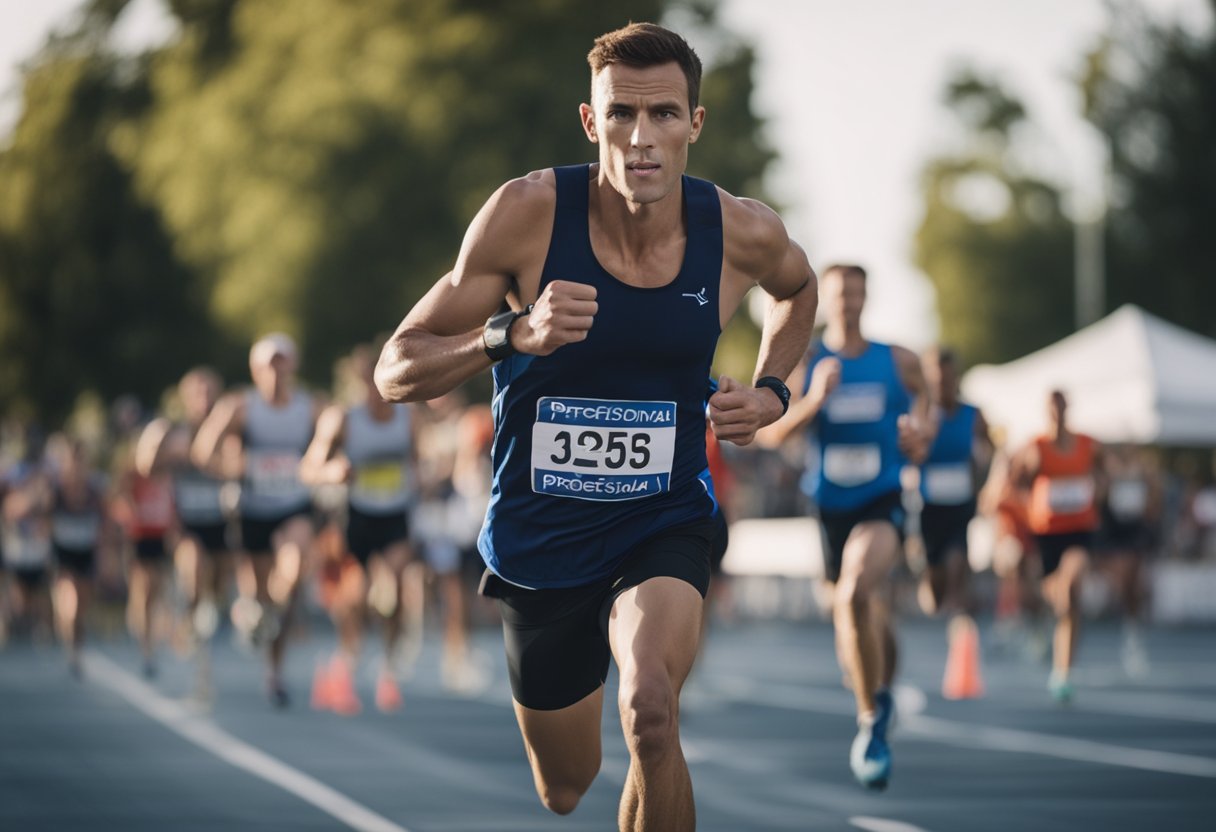
When running a half marathon, injury prevention should be a top priority. Proper posture is crucial to prevent injury and maintain stamina throughout the race.
To maintain good posture, keep your shoulders relaxed and avoid hunching over. Keep your head up and look straight ahead, rather than down at your feet. This will help you breathe easier and maintain a steady pace.
It’s important to wear the right shoes for your foot type and gait. Visit a specialty running store to get properly fitted for shoes that provide the right amount of support and cushioning. Investing in a good pair of shoes can help prevent injuries such as shin splints and plantar fasciitis.
In addition to proper footwear, stretching before and after your run can also help prevent injury. Focus on stretching your calves, quads, hamstrings, and hip flexors. Foam rolling can also help relieve tension in your muscles and prevent injury.
If you do experience pain or discomfort during your training, it’s important to address it promptly. Resting and icing the affected area can help alleviate pain and prevent further injury. If the pain persists, consult a healthcare professional.
By prioritizing injury prevention and maintaining proper posture, you can increase your chances of completing a half marathon injury-free and with a strong finish.
Hydration and Nutrition
When running a half marathon, it is essential to ensure that you are properly hydrated and fueled. Proper hydration and nutrition can help you maintain your energy levels and prevent dehydration, which can lead to fatigue, muscle cramps, and other issues.
Before the race, it is recommended that you drink plenty of fluids to ensure that you are well hydrated. You should also eat a balanced meal containing carbohydrates, protein, and healthy fats to provide your body with the energy it needs to perform at its best.
During the race, you should aim to drink water or a sports drink at regular intervals to replace the fluids lost through sweat. It is also recommended that you consume energy gels or other high-carbohydrate snacks to maintain your energy levels.
After the race, it is important to continue hydrating and refuel your body with a balanced meal containing carbohydrates, protein, and healthy fats. This will help your body recover from the physical exertion of the race and prevent muscle soreness and fatigue.
In summary, proper hydration and nutrition are essential for running a successful half marathon. By following these guidelines, you can help ensure that your body has the energy it needs to perform at its best and avoid dehydration and other issues.
Race Day Preparation
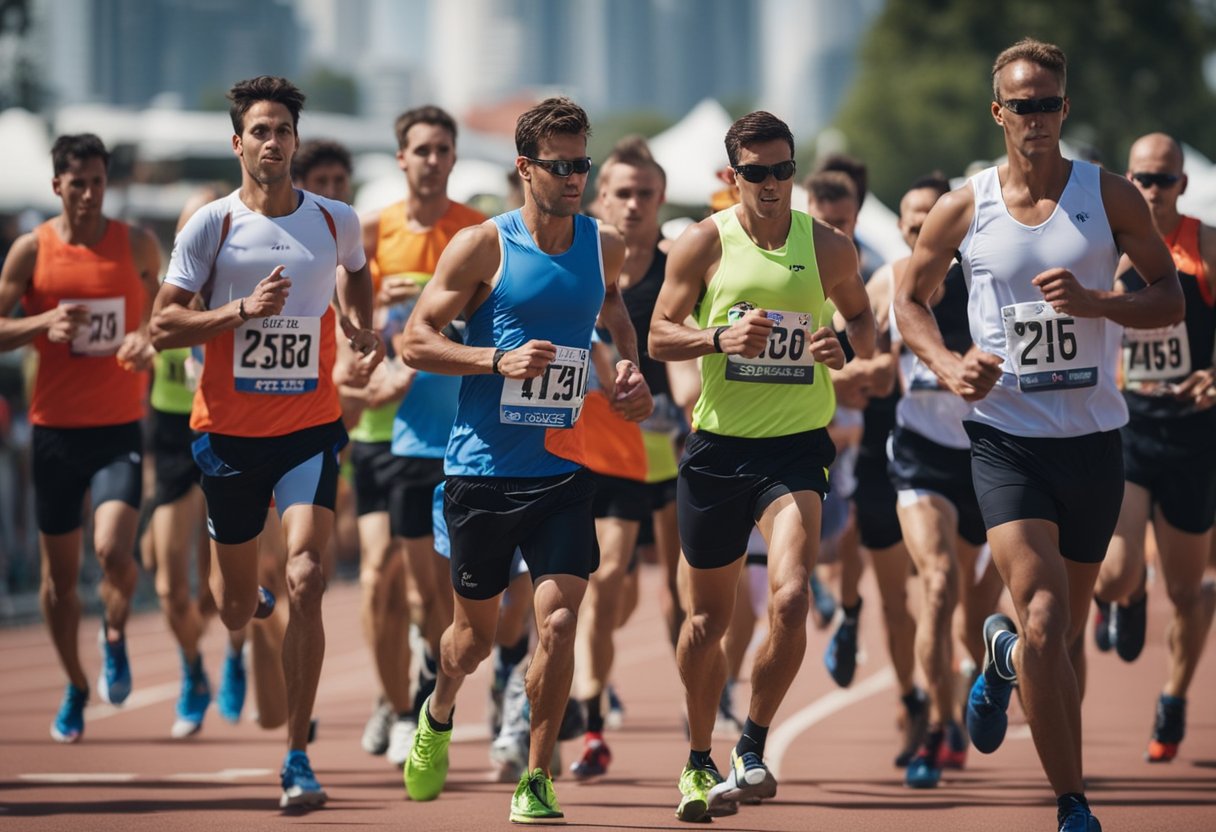
On the day of the race, it’s important to make sure you’re fully prepared so you can perform your best. Here are a few tips to help you prepare for the big day:
Get Plenty of Rest
Make sure you get a good night’s sleep the night before the race. This will help you feel rested and energized on race day. Try to get at least 7-8 hours of sleep.
Eat a Good Breakfast
Eating a healthy breakfast is important on race day. You want to make sure you have enough energy to get through the entire race. Eat a meal that is high in carbohydrates and low in fat. Some good options include oatmeal, toast with peanut butter, or a banana.
Arrive Early
Make sure you arrive at the race early so you have plenty of time to warm up and get in the right mindset. You don’t want to be rushing around at the last minute.
Warm Up
Before the race, it’s important to warm up properly. This will help prevent injury and get your body ready for the race. Do some light jogging and stretching to get your muscles warmed up.
Stay Hydrated
Make sure you drink plenty of water before and during the race. Dehydration can cause fatigue and cramping, which can really slow you down.
Taper
In the days leading up to the race, it’s important to taper your training. This means you should reduce the intensity and volume of your workouts so your body can recover and be ready for the race.
By following these tips, you’ll be well-prepared and ready to tackle the 21km race with confidence.
Equipment for a 21km Run
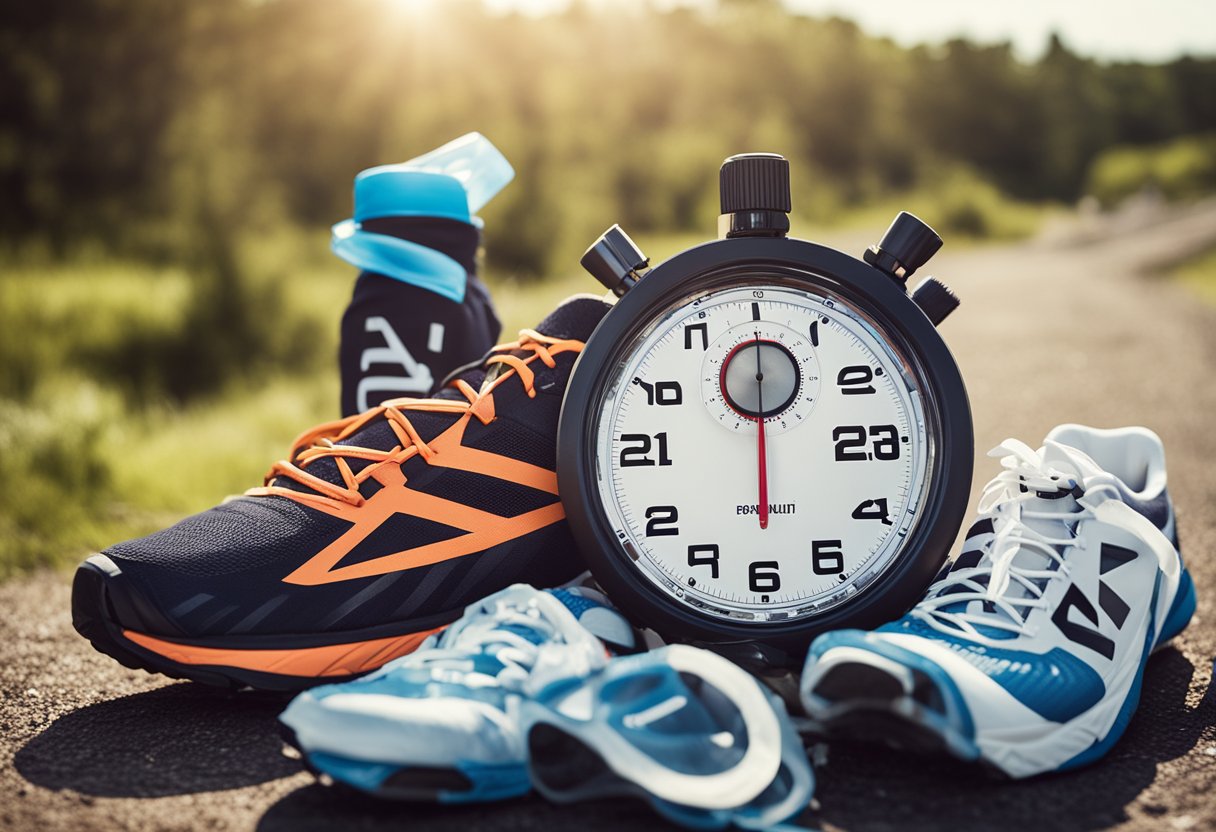
When preparing for a 21km run, it’s essential to have the right equipment to ensure that you can perform at your best. Here are some of the essential pieces of equipment you’ll need:
Shoes
Having the right shoes is crucial for any runner, but it’s especially important for a 21km run. You’ll want to choose shoes that are comfortable, provide good support, and are designed for road running. Look for shoes that have a good amount of cushioning to help absorb shock and reduce the impact on your joints. It’s also essential to make sure that your shoes fit well to prevent blisters and other foot injuries.
Clothing
When it comes to running clothing, comfort is key. Choose clothes that are made from breathable materials to help keep you cool and dry during your run. You may also want to consider wearing moisture-wicking clothing to help prevent chafing. It’s also important to dress appropriately for the weather conditions. If it’s cold outside, wear layers to help keep you warm. If it’s hot, wear lightweight clothing to help you stay cool.
Hydration
Staying hydrated is essential for any runner, but it’s especially important for a 21km run. Make sure you bring plenty of water with you on your run, either in a water bottle or a hydration pack. You may also want to consider bringing a sports drink to help replenish electrolytes lost through sweat.
Nutrition
Eating the right foods before and during your run can help you perform at your best. Make sure you eat a balanced meal a few hours before your run to give your body the fuel it needs. During your run, consider bringing along energy gels or other snacks to help keep your energy levels up.
By having the right equipment, you can help ensure that you have a successful 21km run. Remember to choose equipment that is comfortable, supportive, and designed for running to help you perform at your best.
Benefits of Running a Half Marathon
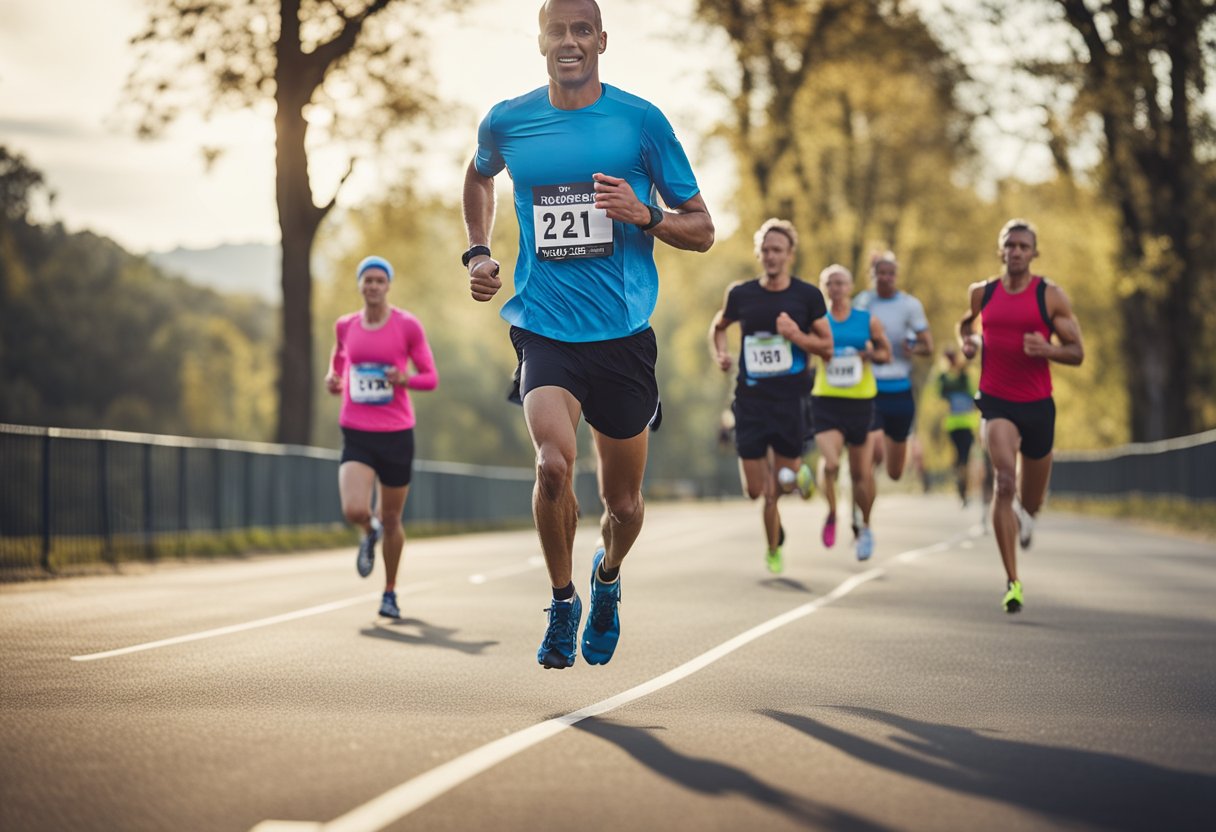
Running a half marathon can provide a range of benefits for your body and mind. Here are some of the benefits you can enjoy by running a half marathon:
Cardiovascular Health
Running a half marathon can improve your cardiovascular health by strengthening your heart and lungs. Regular running can help reduce the risk of heart disease, stroke, and high blood pressure. Running also helps to increase your lung capacity, which can improve your overall endurance.
Weight Loss
Running a half marathon can be an effective way to lose weight and maintain a healthy weight. Running burns a significant number of calories, which can help you lose weight over time. Running also helps to increase your metabolism, which can help you burn more calories throughout the day.
Mental Health
Running a half marathon can provide a range of mental health benefits, including reducing stress and improving your mood. Running can also help to boost your confidence and self-esteem, which can have a positive impact on your overall mental health.
Share the Experience
Running a half marathon can be a great way to share the experience with others. You can join a running group or participate in a race with friends or family members. Running with others can help to motivate you and make the experience more enjoyable.
Overall, running a half marathon can provide a range of benefits for your body and mind. By incorporating running into your regular exercise routine, you can improve your cardiovascular health, lose weight, and enjoy a range of mental health benefits.
Setting Goals: The Sub-2 Half Marathon
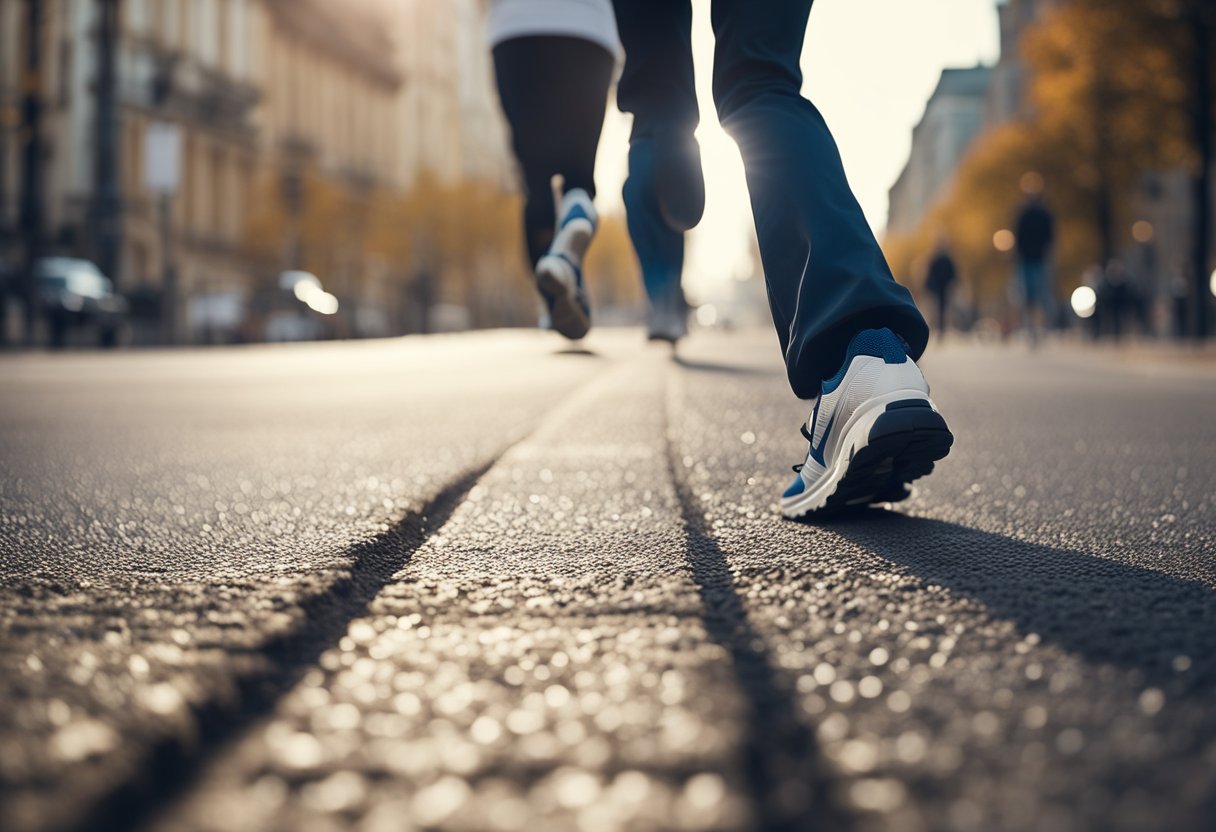
If you’re an experienced runner looking to take on a new challenge, running a sub-2 half marathon might be just the goal you need. A sub-2 half marathon means completing a 21km race in under 2 hours. It’s a challenging but achievable goal for many runners, and it can be a great way to push yourself to new heights.
To achieve a sub-2 half marathon, you’ll need to focus on both your training and your race-day strategy. Here are a few tips to help you get started:
- Build your endurance: Running a sub-2 half marathon requires a strong base of endurance. Make sure you’re logging plenty of miles in your training, gradually increasing your distance over time. Incorporate both long runs and speed work into your training plan to build your cardiovascular fitness.
- Practice pacing: Pacing is key to running a successful half marathon. Aim to run at a steady pace throughout the race, rather than starting out too fast and burning out later on. Practice pacing during your training runs to get a feel for what a sustainable pace feels like.
- Fuel properly: To run a strong half marathon, you’ll need to fuel your body properly. Make sure you’re eating a healthy, balanced diet in the weeks leading up to the race, and be sure to eat a nutritious meal before the race. During the race, take advantage of aid stations to stay hydrated and fuel up with energy gels or other snacks as needed.
- Visualize success: Finally, don’t underestimate the power of visualization. Visualize yourself crossing the finish line in under 2 hours, and focus on that image throughout your training and during the race itself. With the right mindset and plenty of hard work, you can achieve your goal of running a sub-2 half marathon.
Frequently Asked Questions
What is a good half marathon time?
A good half marathon time depends on various factors such as age, gender, fitness level, and experience. However, a decent time for a beginner would be around 2 to 2.5 hours, while an experienced runner can complete it in 1.5 to 2 hours.
How long does it take to train for a half marathon?
It usually takes around 12 to 16 weeks to train for a half marathon. However, the duration may vary depending on your fitness level and running experience. It is recommended to follow a proper training plan that gradually increases your mileage and includes rest days to avoid injuries.
What is the average time for a half marathon for a man?
The average time for a half marathon for a man is around 2 hours and 5 minutes. However, this time may vary depending on age, fitness level, and experience.
How to run 21km in 2 hours?
To run 21km in 2 hours, you need to maintain a pace of around 5:40 minutes per kilometer. It is essential to follow a proper training plan that includes speed work and long runs. Additionally, you should focus on your nutrition and hydration to improve your performance.
Can I run 21km without training?
It is not recommended to run 21km without training. Running a half marathon without proper training can lead to injuries and may negatively affect your health. It is essential to follow a proper training plan that gradually increases your mileage and includes rest days to avoid injuries.
How long does it take to prepare for a 21km run?
It usually takes around 12 to 16 weeks to prepare for a 21km run. However, the duration may vary depending on your fitness level and running experience. It is recommended to follow a proper training plan that gradually increases your mileage and includes rest days to avoid injuries.
